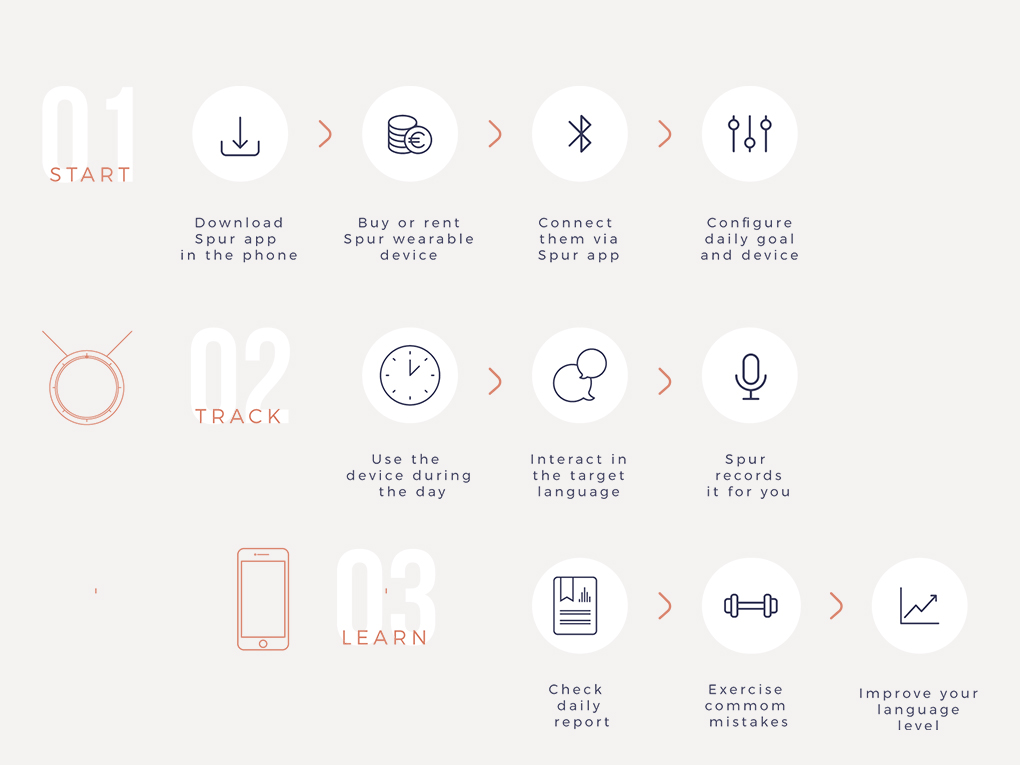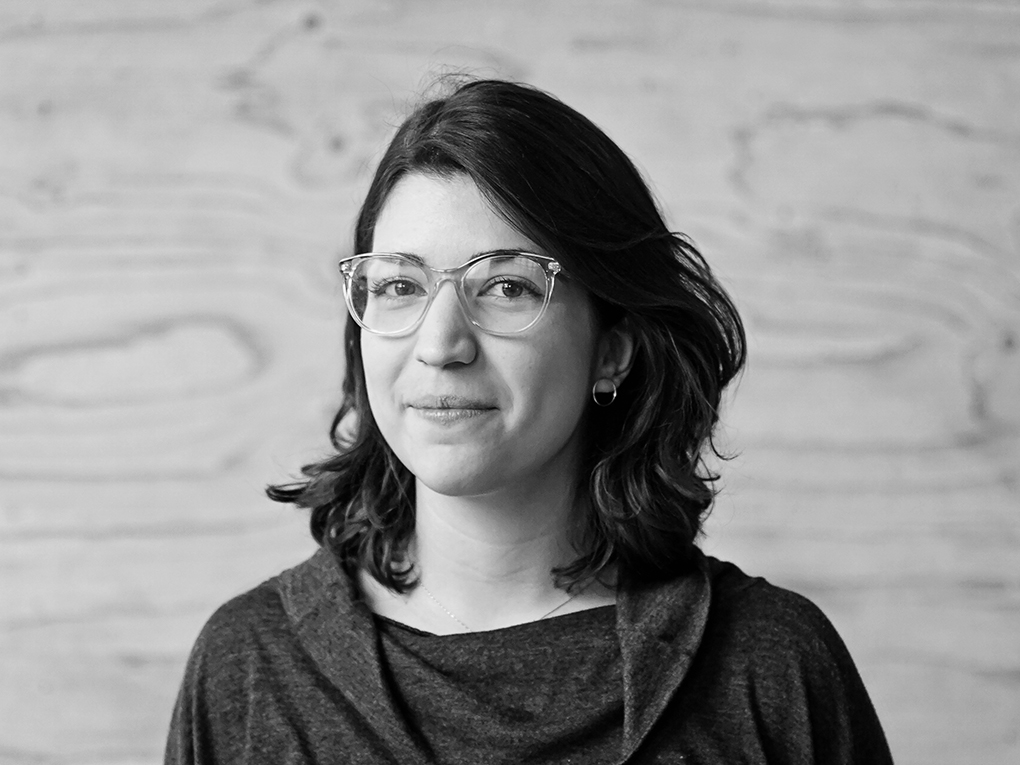Popular belief says that the best way to learn a new language is moving to a country that speaks it. Nowadays, with the rise of globalization, this assumption cannot be confirmed, as many migrants and expats struggle with learning the local language in different countries, dealing and suffering from the language barrier. Understand- ing the adaptation period, they go through and the relevance of language learning in this period is of high relevance for both the receiving country and for the foreigners. This master thesis focused on undressing the German scenario regarding informal learning approaches and developing a solutionfocused on helping expats to improve their language level.
After conducting a user-centered process counting with the collaboration of users, the outcome of the project is a product-service system that provides language tracking to enhance the learning process. With this service, the users can improve their daily interactions in the target language, transforming it into valuable learning input, through a tailored report containing their weaknesses and strengths helping them to keep learning and improving based on their vocabulary and issues. It counts both with a wearable device and an app, aiming to help expats on keeping a routine involving the language and providing content that is relevant for them and allowing them to have exercises focused on their vocabulary and mistakes.





